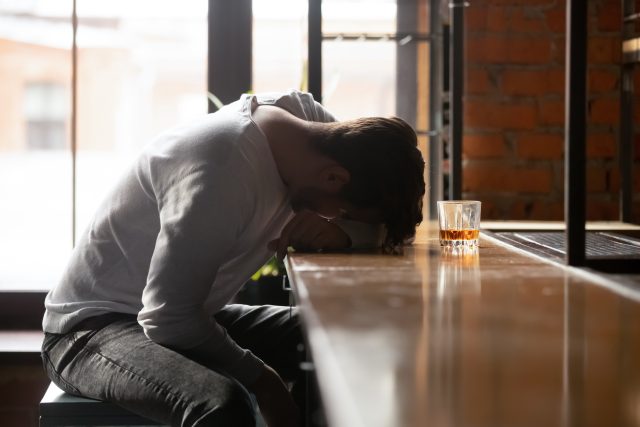This website uses cookies so that we can provide you with the best user experience possible. Cookie information is stored in your browser and performs functions such as recognising you when you return to our website and helping our team to understand which sections of the website you find most interesting and useful.
Will phrases like ‘same again?’ soon be banned in pubs?
Publicans are being told to stop saying the phrases “same again?” and “is that a double?” in a bid to curb binge drinking.

The advice, which now comes from the International Alliance for Responsible Drinking (IARD), forms part of training guides for people working in bars, pubs and restaurants.
According to reports, trainees using the guidance are being told: “Avoid using presumptive language: it can make customers feel pressured to drink. For example, don’t say ‘same again?’ Instead say ‘what would you like this time?’ Don’t say ‘do you want a large?’. Instead say ‘would you like a small or large measure?’”
Henry Ashworth president and chief executive of IARD said: “IARD member companies support retailers’ and hospitality venues’ efforts to have their staff sell and serve alcohol beverages responsibly, to help prevent sale and service to those underage or knowingly intoxicated. Towards this, we are proud to launch our latest resources that can be used to give staff the confidence to deny sales and service where necessary.
Coinciding with the timing of this advice, a new podcast that explores the complex relationship between beer, pubs and mental health, named ‘Same Again?’, has also just launched.
The documentary-style podcast is produced and presented by award-winning writer and audio maker, Emma Inch, and is available on all major podcast platforms and takes the form of a short series of episodes themed around such topics as ‘Anxiety’, ‘Stigma’, and ‘Men’s Mental Health’.
Inch is a renowned beer communicator and former British Beer Writer of the Year, but she also has a Masters degree in Mental Health and previously worked for more than 20 years as a frontline mental health worker.
Speaking to the drinks business, Inch explained: “For me, ‘Same Again?’ has a number of different meanings in the context of beer, pubs and mental health. Most of these are not uncritically positive. The podcast aims to: Start some honest discussions about our mental health, acknowledging the effect that alcohol – including beer – can have on it, particularly when we drink to excess; but also recognise the ways in which pubs often work with their communities in a positive way, providing us with an important escape from loneliness, and often heroic acts of fundraising and outreach work; and look at the ways in which – whether we drink full-strength or alcohol free – beer might perhaps sometimes bring us that little bit closer together.”
Inch explained: “I used to think that my two careers were very different, opposite ends of the spectrum! However, the more I work in and around the beer industry, the more I see that mental health is a very real issue that often goes unaddressed in the beer and pub world. Those of us that love pubs know the real value a pint with a mate can bring into our lives, but many of us are also aware of the way too much alcohol can affect our mood.”
Each episode of ‘Same Again?’ features resident psychiatrist, Dr Graham Campbell, alongside guests from both inside and outside the beer and pub industry including John Robins (Comedian & Radio 5 Live presenter), Greg Bateman (former rugby union player & founder of People’s Captain), Ol Fozard (head brewer at Rooster’s Brewing Co), Keith Bott (President of PubAid), Emmie Harrison-West (journalist, beer writer & metro.co.uk columnist), Luke Boase (founder of Lucky Saint), Laura Willoughby (founder of Club Soda), and more.
Inch told db: “If you listen to the intro to the podcast, the words ‘Same Again?’ have something of a sinister sound. I think because someone saying ‘same again?’ is often a double-edged sword and that’s what I’m trying to explore.”

To coincide with the launch of the podcast, Inch was involved in launching a 7.2% ABV IPA collaboration brew, named Like & Subscribe, which has been co-created between Brighton’s UnBarred Brewery, hop suppliers BarthHaas X, A Woman’s Brew podcast and 1 Minute Beer Review.
Speaking about the importance of assisting in people’s mental health when out drinking, Ashworth, from the IARD, explained: “Together, we can help ensure the positive declines in harmful drinking seen in many parts of the world continue to spread, creating long-lasting changes in communities across the world.”

